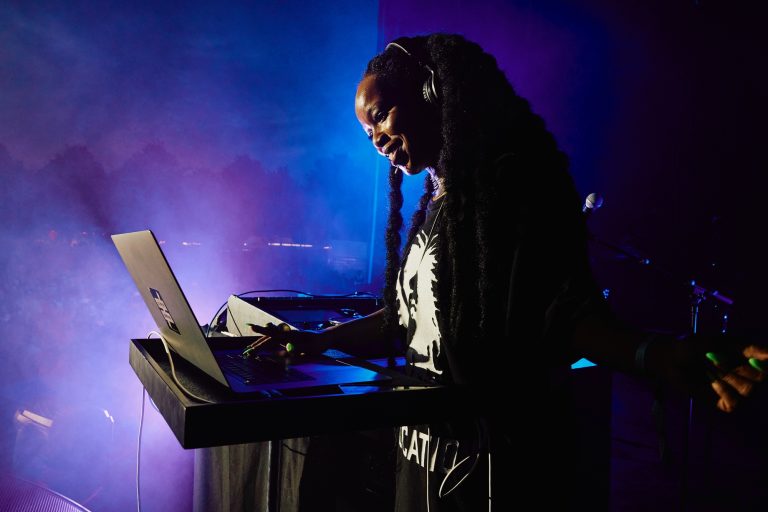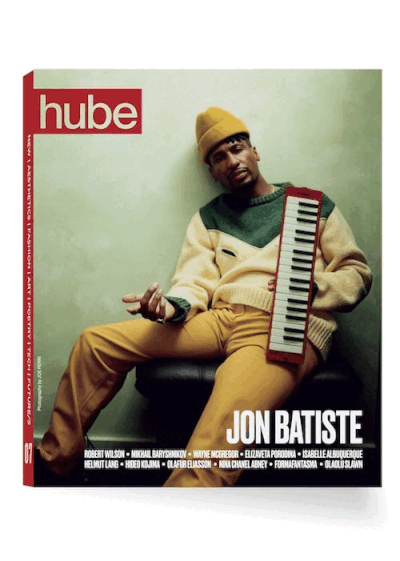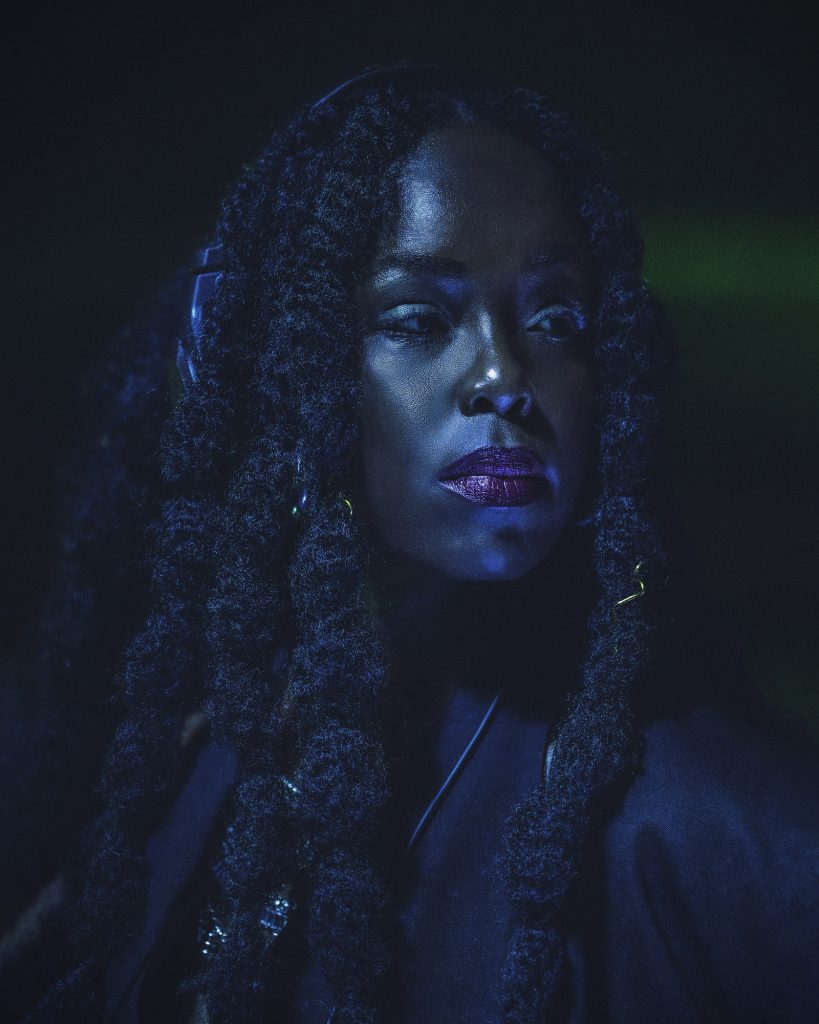
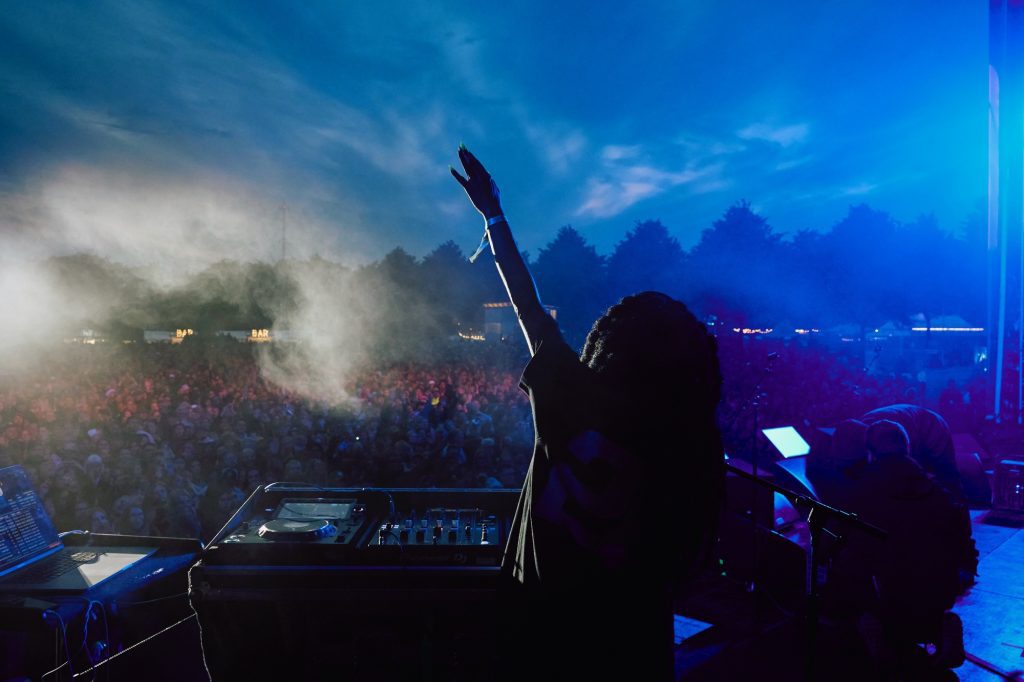
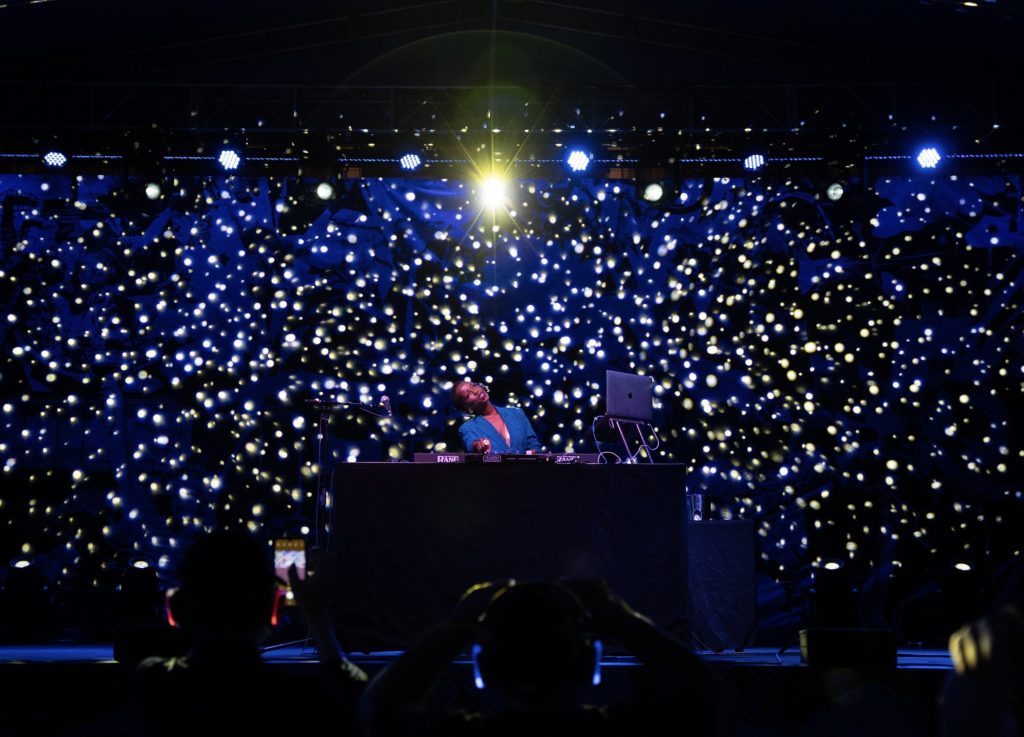
For DJ Reborn, spinning records isn’t just about moving crowds – it’s about telling stories and creating spaces for reflection, joy, and even revolution. With a career spanning years and a passion for activism, she’s been at the forefront of blending music and social justice through her initiative DJs for Justice. What were DJ Reborn’s early days in the industry and how does she continue to evolve her sound while staying true to her purpose?
hube: What initially drew you to DJing, and how did you get started in the industry?
DJ Reborn: Growing up in a family of record collectors and music lovers, DJing felt almost inevitable for me. My oldest brother was a musician, so there was always music around. I was especially drawn to vinyl – the artwork, liner notes, the physicality of it. Riding my bike around Chicago with music in my ears was pure joy.
When I started to understand what DJs do – control the mood, the energy, and tell a story – I knew that was something I wanted to be part of. Initially, it was just a hobby. I didn’t think of it as a career until later. I’d collect records, DJ at events for free to build my skills, and eventually decided to go all in. I moved to New York to see if I could make a living from it, and here I am.
h: You’re known for blending various music genres in your sets. Could you share your approach to mixing different styles of music?
DJR: It’s all about personal taste and storytelling for me. Growing up, I loved listening to different genres, and that curiosity stuck with me. I like taking things that don’t seem like they should fit together – whether that’s hip-hop and jazz or Afrobeat and house – and finding a way to make them blend.
It’s more than just keeping the beats per minute aligned; it’s about mood and energy. Sometimes I’ll start with slower classics, then build into something more high-energy, like Afrobeat or house, without worrying about sticking to one genre. The challenge is keeping it seamless while taking the listener on a journey.
h: As an educator, how do you incorporate your passion for DJing into your teaching methods?
DJR: Just like in DJing, where I adjust the set based on how the crowd reacts, teaching is about being flexible. Not every student will respond to the same teaching method, so I adapt my approach – just like I would if a track isn’t hitting with the crowd. It’s all about finding what works and keeping the energy flowing.
And when it comes to DJing, I tell my students it’s like being an athlete: you have to learn from your mistakes without letting them hold you back. Whether you stumble on a mix or in life, the key is moving forward and pushing yourself.
